In a small dusty village of Odisha, life was simple—but not for Madhab Sahu, the only son of the village’s respected jeweller, Damodar Sahu. Madhab wasn’t the kind of boy who polished gold ornaments with patience like his father. Instead, he polished lies, scams, and quick-money tricks.
By the time he was 15, the entire village had heard stories of his frauds—selling brass rings as gold, cheating neighbouring farmers in card games, and even pawning his mother’s cooking utensils. His father, a strict and honest man, often warned him,
“Madhab, gold is not earned by digging shortcuts. It comes from years of trust.”
But Madhab never listened. One evening, after being caught cheating the village head’s nephew, Damodar beat him black and blue in front of the villagers. Humiliated, Madhab packed a small cloth bag and ran away, swearing never to return.

A New Playground – Kalyan, Maharashtra
Months later, he landed in Kalyan, a bustling town in Maharashtra, home to one of the busiest railway junctions in the state. Here, Madhab discovered that where there were people in a hurry, there were opportunities to cheat.
At first, he started small—picking unattended luggage, swapping costly parcels with junk, and stealing wallets from sleeping passengers. But the Railway Police were not blind. Within months, he was caught thrice, spending short stints in the lock-up.
Yet, instead of breaking his spirit, these arrests introduced him to Constables Patil, More, and Gaikwad—men in uniform but with pockets greedier than his own. They laughed at Madhab’s tricks and, over cups of cutting chai at the platform tea stall, they hatched a scheme that was devilishly simple.

The Extortion Business
The plan worked like clockwork. Madhab would sell “second-hand” goods—watches, mobile phones, branded shoes—at throwaway prices to unsuspecting people. These items were usually his own or picked from unclaimed luggage.
A day or two later, the same Railway Police constables would arrive at the buyer’s place, Madhab in handcuffs, acting like they had caught him red-handed. They would accuse the buyer of purchasing stolen goods—a crime punishable by law—and threaten to register them as accomplices.
The frightened buyer would be told:
“Settle this quietly. Pay ten times the value of the goods, and we’ll forget the case.”
The money collected would be split—40% to Madhab, 60% to the constables.
For months, they looted innocents who thought they were just grabbing a bargain. It was the perfect racket—until greed brought them face-to-face with the wrong target.
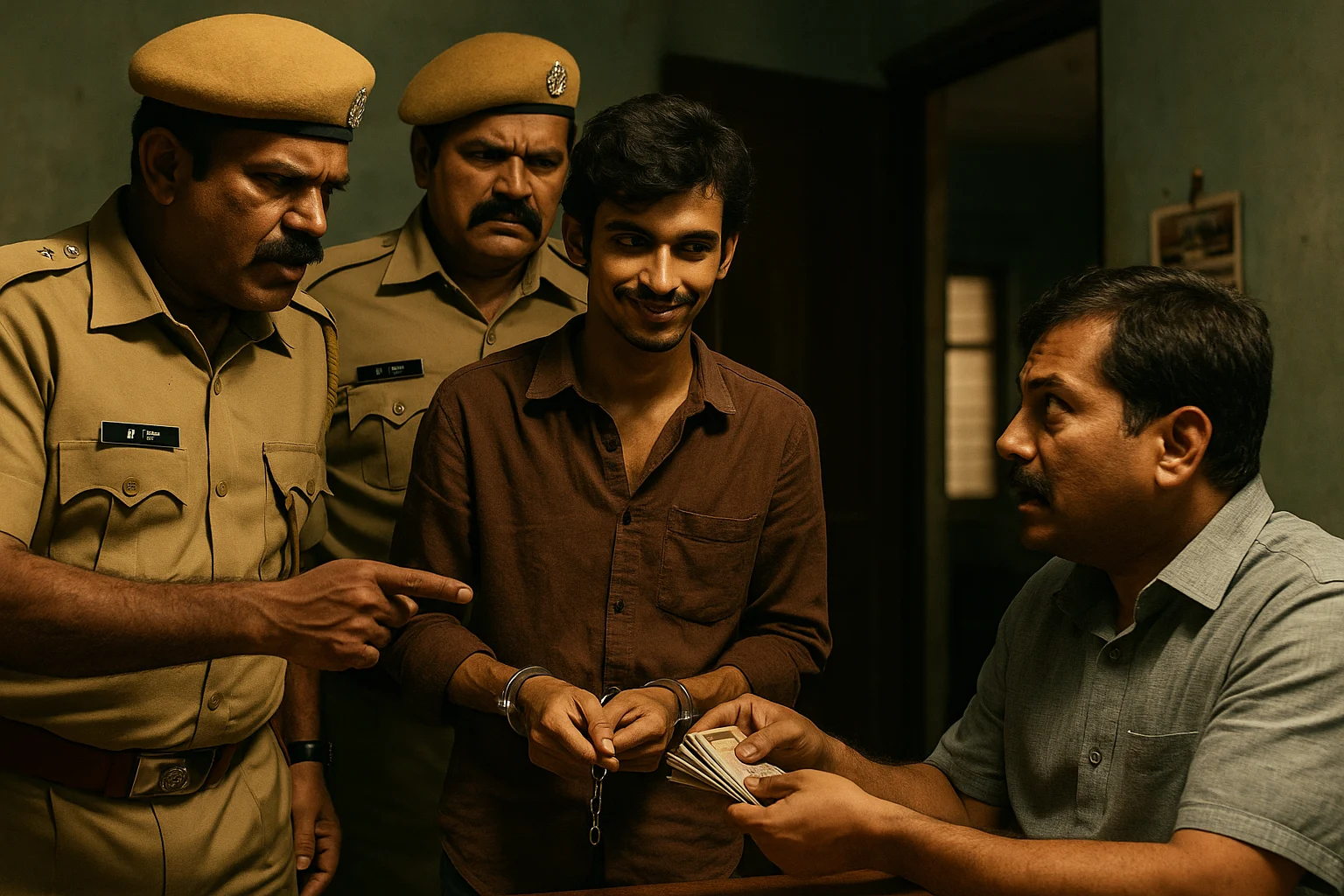
The Day It Went Wrong
It was a humid afternoon when Madhab spotted a familiar face at the station—a man from his own village in Odisha, Prakash Naik. They had played kabaddi together as children, though Prakash had no idea of Madhab’s criminal career.
“Madhab! Is that you?” Prakash exclaimed, surprised.
Madhab, acting overjoyed, replied, “Prakash! After so long! Listen, I’m in a bit of trouble—need money urgently. I’m selling my phone cheap. Just ₹2,000 for this brand-new model.”
Prakash, thinking it was an old friend in need, bought it without hesitation.

Two days later, Constables Patil, More, and Gaikwad appeared at Prakash’s rented room with Madhab in chains.
“This man sold you a stolen mobile,” Patil said coldly.
“You are now linked to the theft,” Gaikwad added, waving a fake complaint sheet.
Prakash’s face turned pale. “What? He’s my childhood friend. He said it was his own phone!”
“Tell that to the court,” More smirked. “Unless… you settle this now. ₹20,000 and we close the case.”
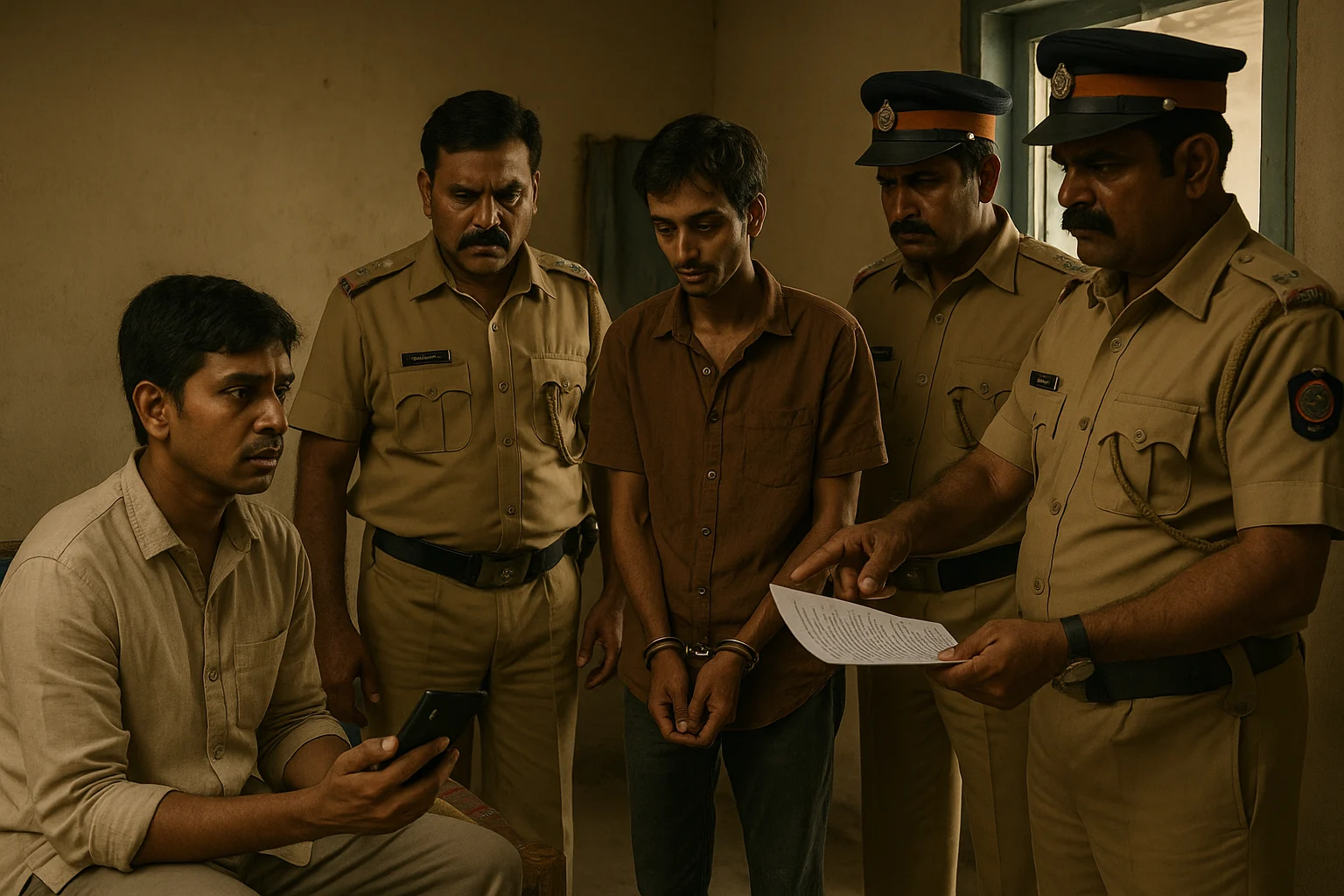
The Unexpected Twist
Prakash wasn’t rich, but he wasn’t foolish either. He quickly called Arjun Mishra, a local social activist known for his fiery speeches and deep knowledge of the law.
Arjun arrived within 15 minutes, notebook in hand. He looked at the constables and asked sharply:
“What’s the FIR number for this theft?”
The constables exchanged glances.
“When was the theft reported? Who’s the complainant? Where’s the property seizure receipt?”
Madhab shifted uncomfortably. The constables stuttered, “Uh… we have it in the office.”
“Good,” Arjun smiled. “Let’s all go to the station and check. But before that—”
He pulled out his phone and called the Local Police Station Inspector, a personal contact.
Within minutes, a jeep arrived, and the tables turned. The three Railway Police constables and Madhab were taken away for questioning.
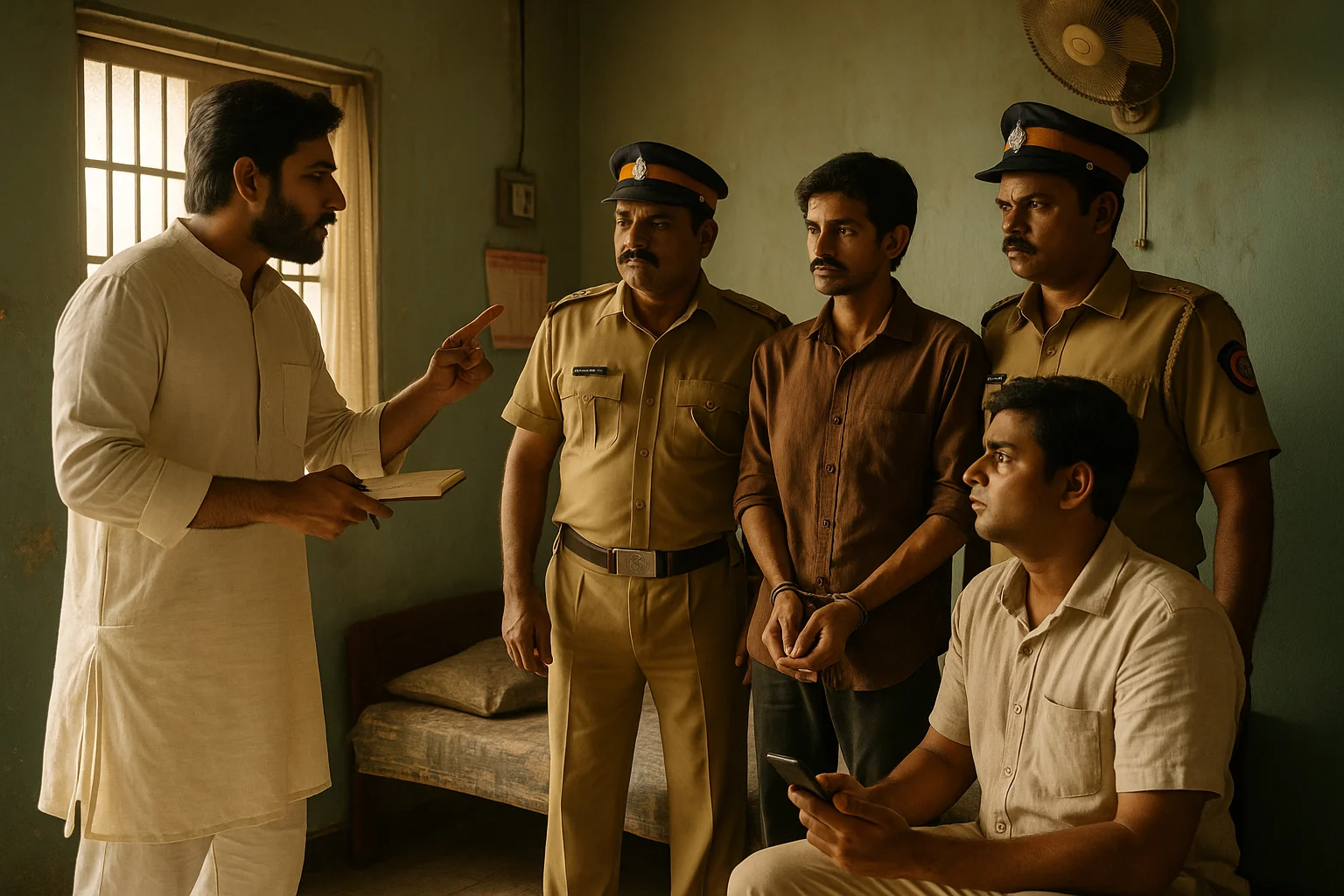
The Investigation
At the police station, the truth unfolded like a bad theatre script. The mobile phone was indeed Madhab’s own. There was no theft case. This racket had been going on for months, extorting thousands from innocent people.
One officer muttered under his breath, “I can’t believe our own constables were in on this.”
The Inspector filed multiple charges under sections of criminal conspiracy, extortion, cheating, and breach of trust.
Madhab, sitting in a corner, realised that the man who had grown up playing kabaddi with him had now kicked him out of the game for good.

Court and Consequences
The case made local headlines:
“Corrupt Railway Police and Conman Nabbed in Sting by Activist”
For weeks, the community discussed it. People who had once thought the cheap deals were harmless now understood the trap they could have fallen into.
Madhab was sentenced to three years in prison. The constables lost their jobs and faced criminal trials.
Prakash, meanwhile, returned to his normal life, but with a story that would be retold at every village gathering:
“Be careful when someone offers you a bargain—sometimes, the real cost is hidden.”
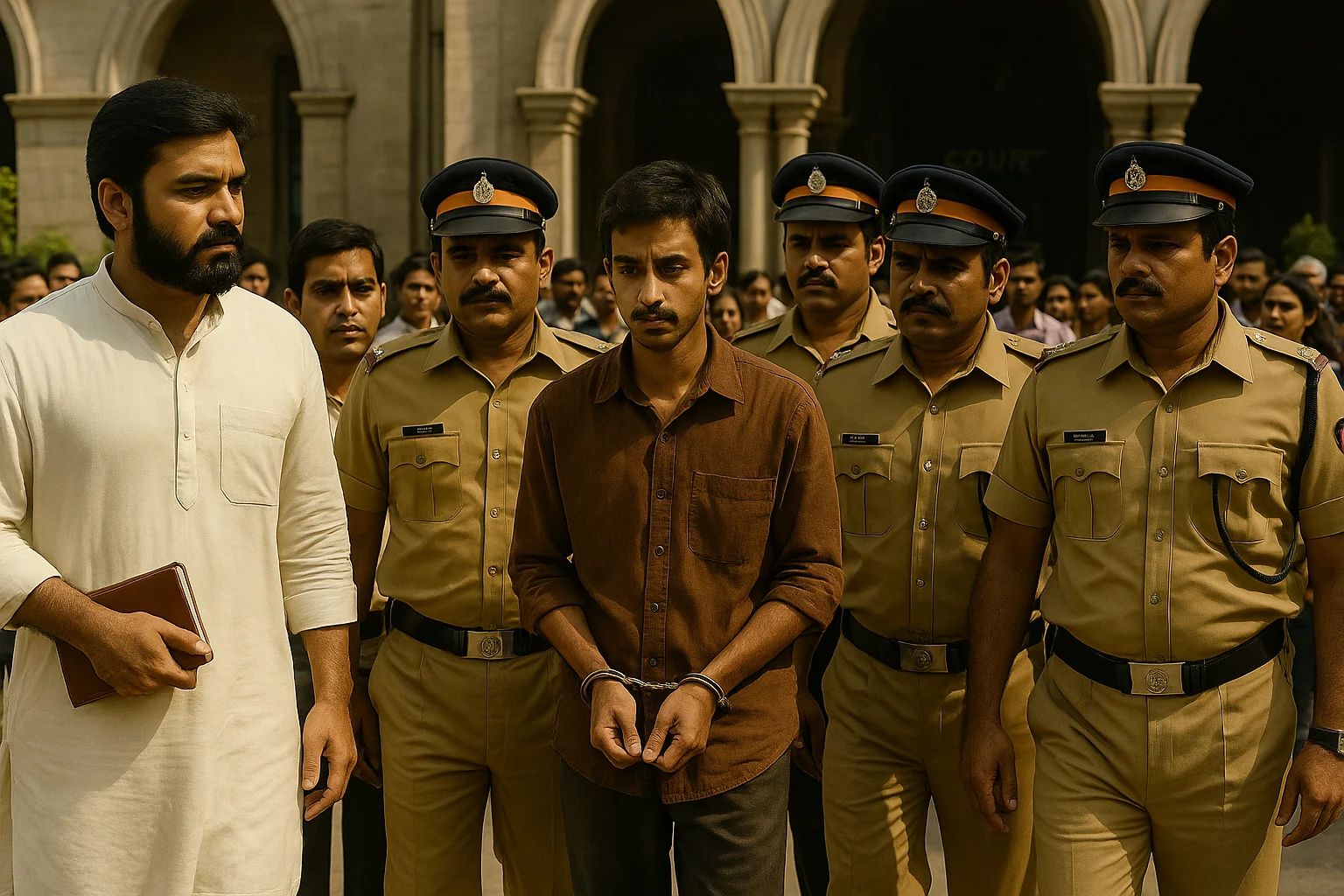
Moral of the Story
No matter how clever your scam, one day you’ll meet someone smarter—and the fall will be harder than you imagine.
Receive Stories and Articles in your Inbox!
We won’t send any promotional or spam emails.










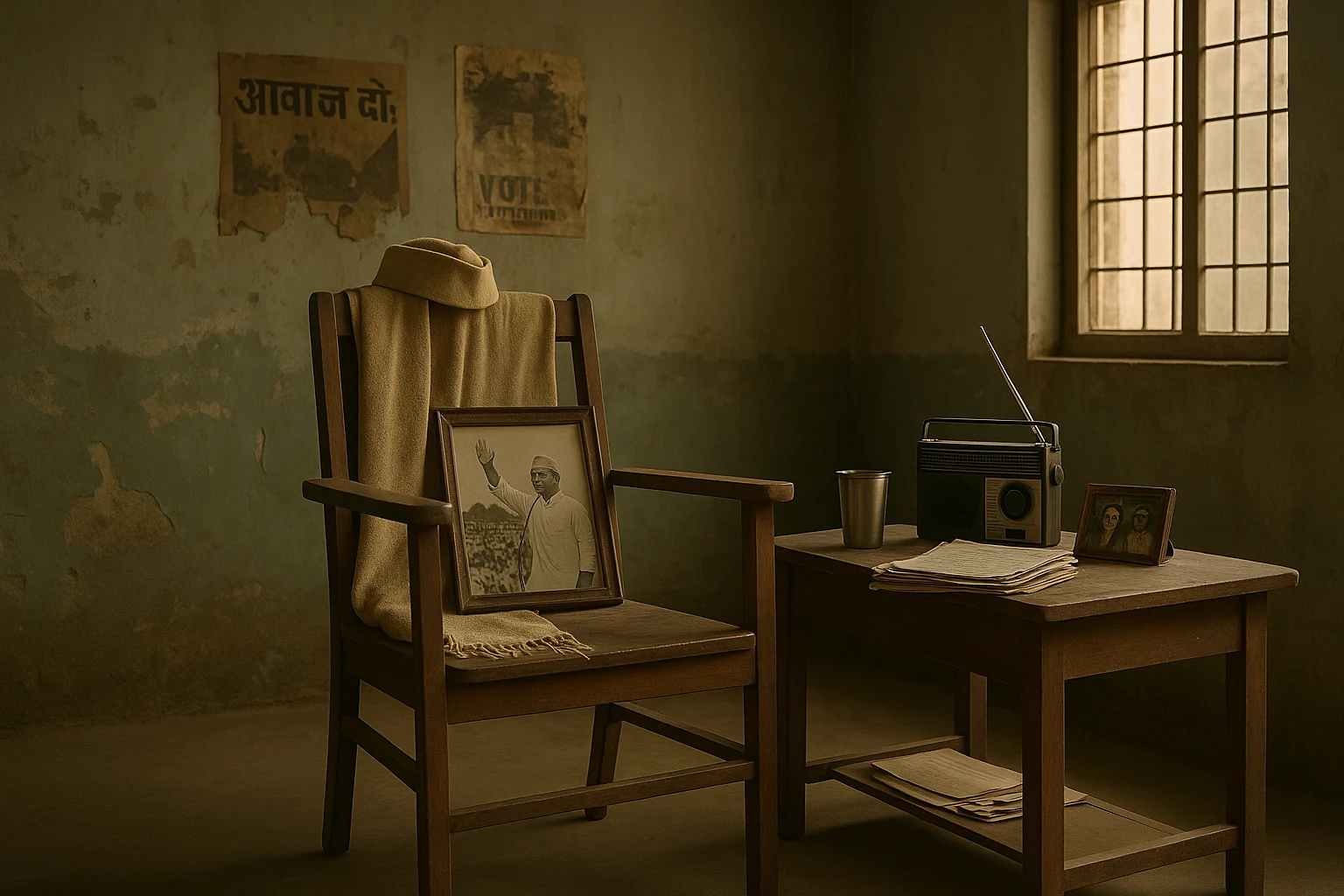



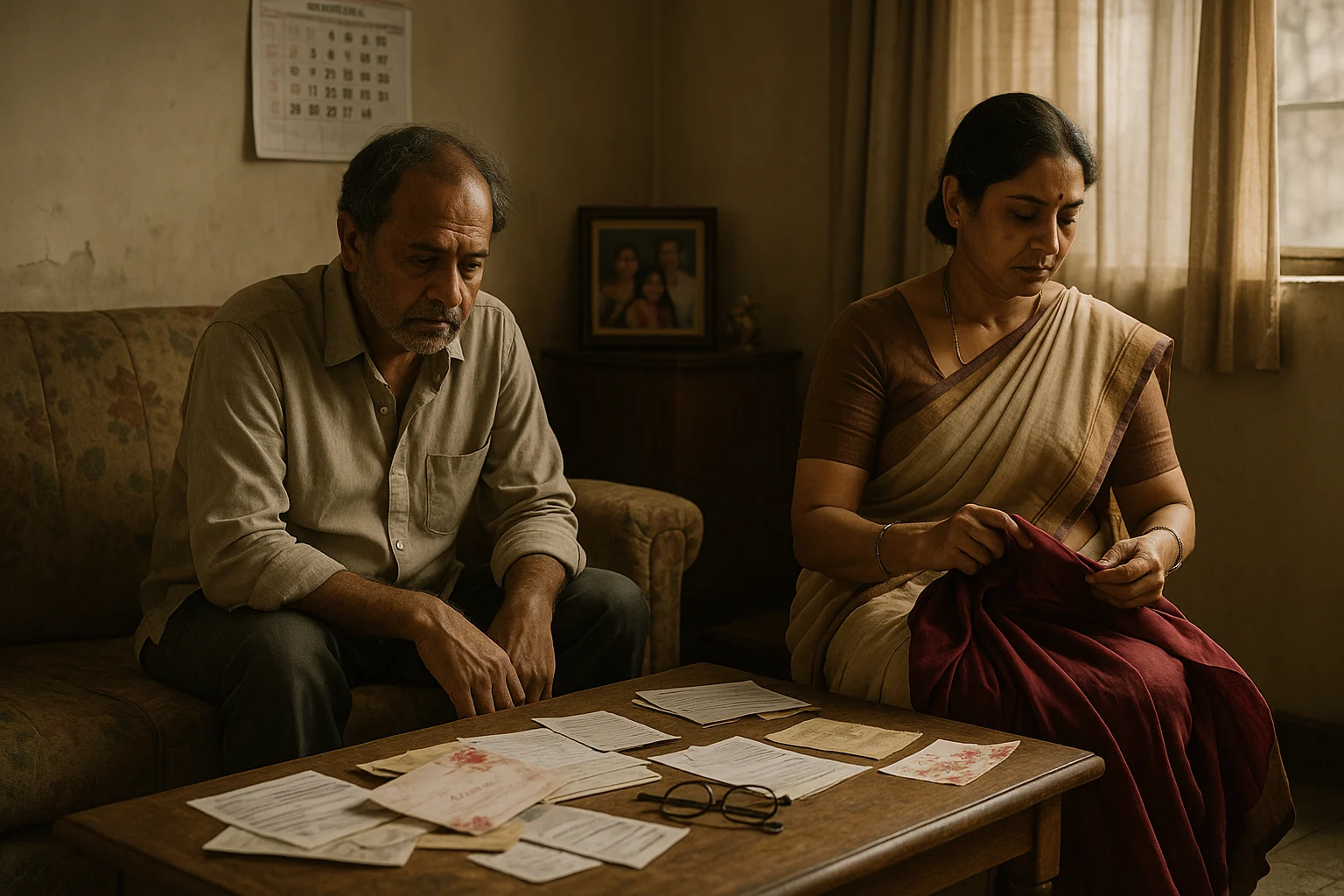
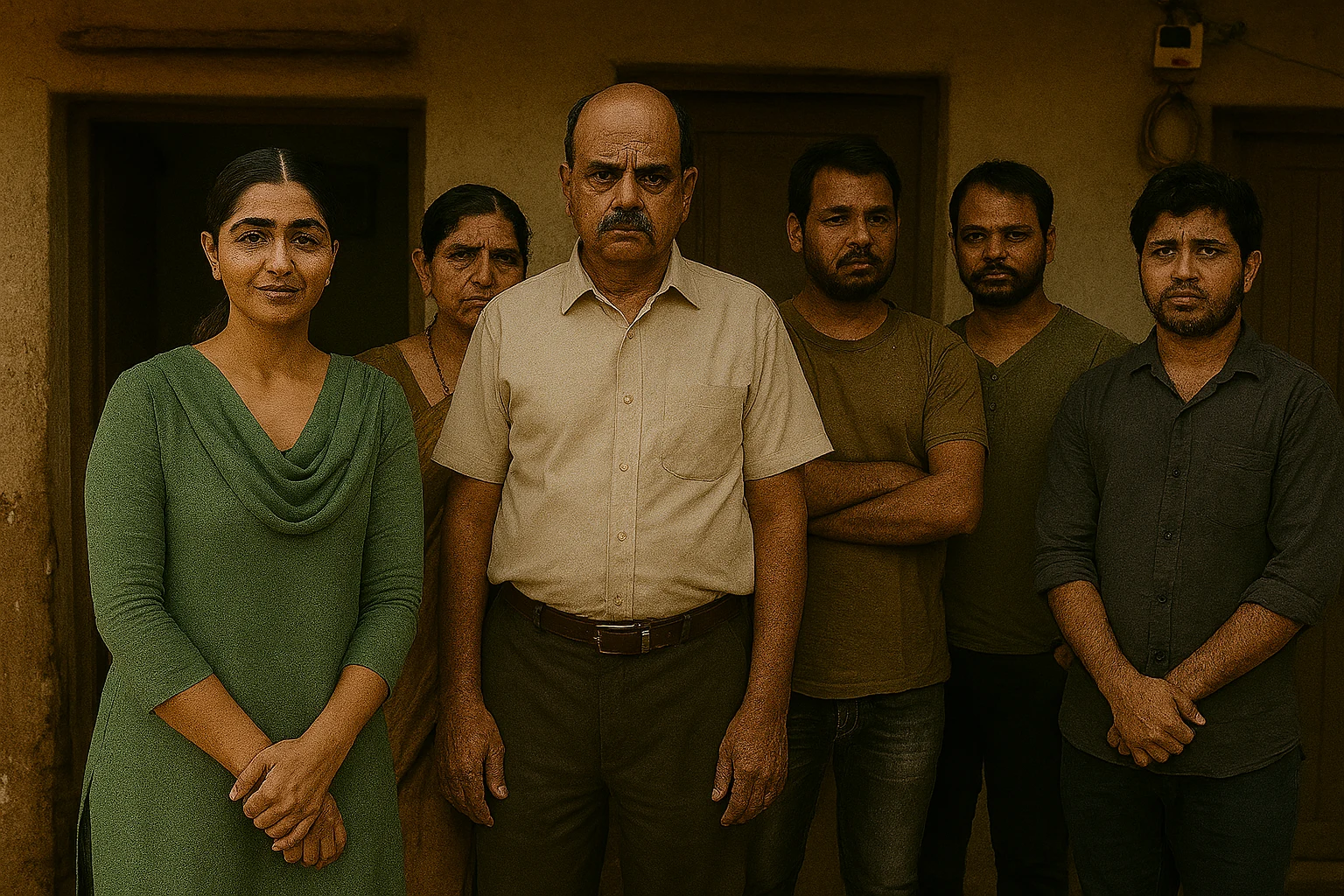






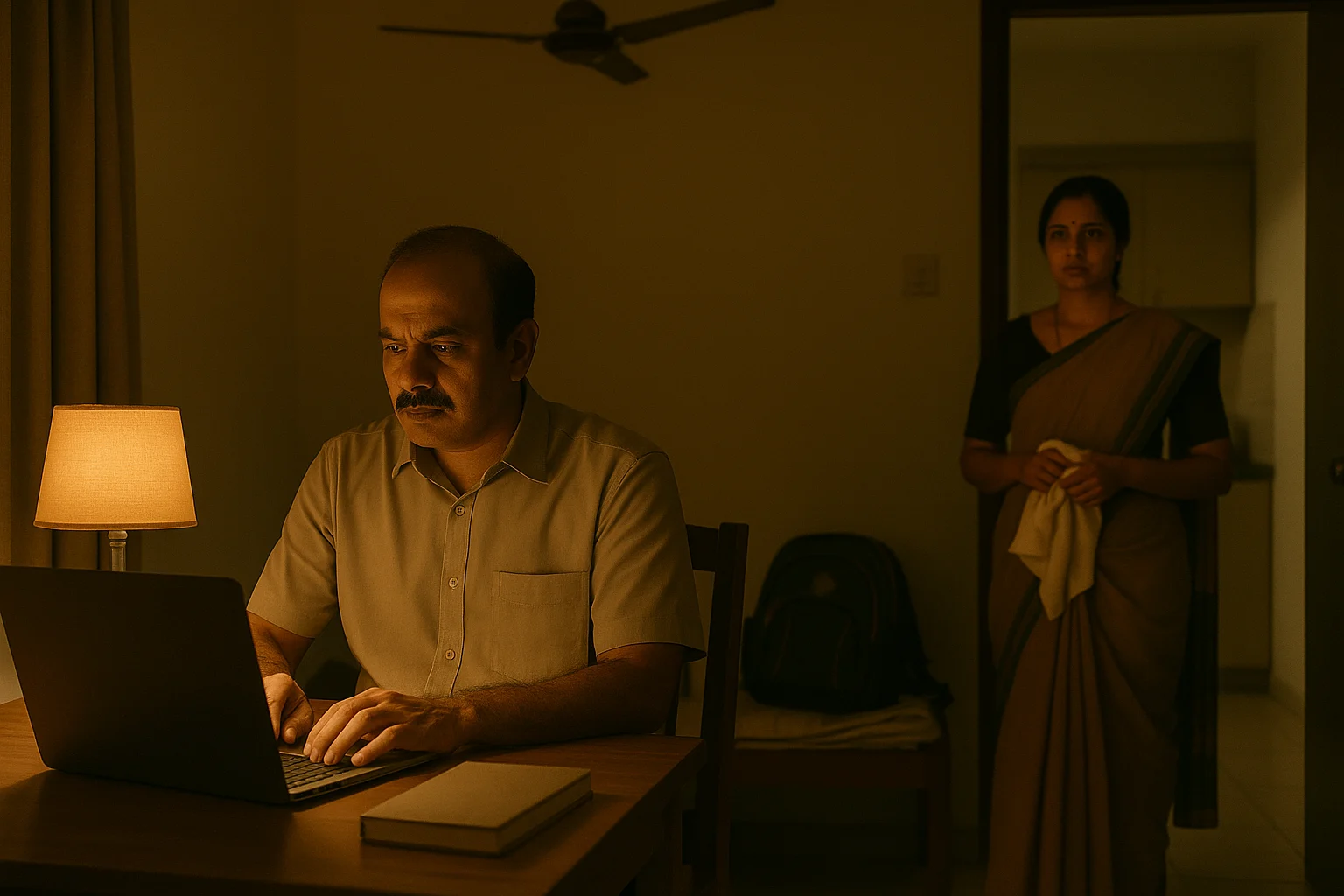






























Amazing story 👏🏻